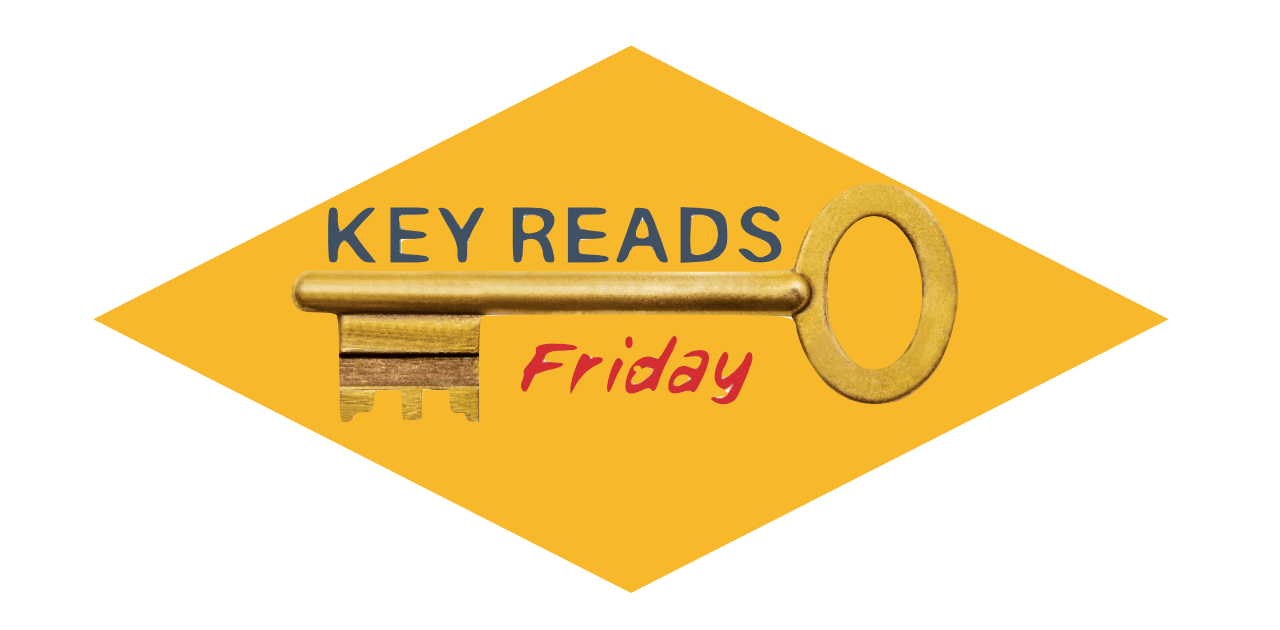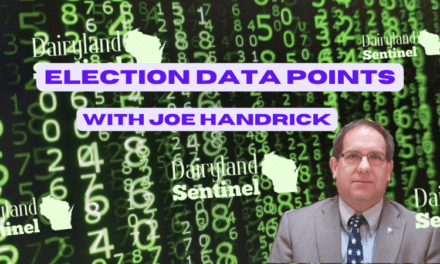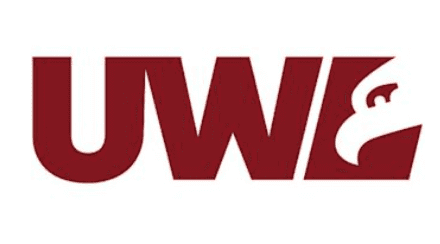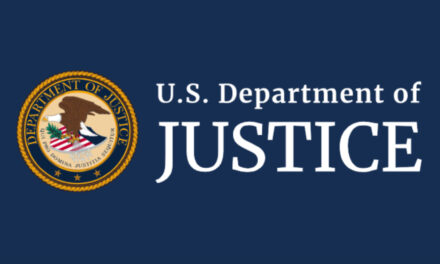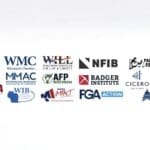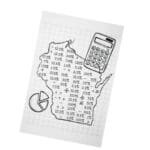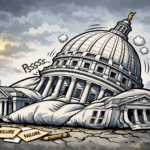We’ve made it to another Friday.
As you prepare for the weekend, let’s get you caught up with some news from across the state.
The Legislative Council Study Committee on the UW continues to foster vigorous discussions regarding the purpose, funding and future of the state’s public universities.
Lawmakers press UW president over spending, return on investment | The Center Square
Republican lawmakers on the study committee looking at the future of the University of Wisconsin want to know what Wisconsin families are getting for the $1.3 billion the state currently spends on the university, and what they should expect if the state spends more.
Lawmakers questioned UW President Jay Rothman at his appearance at Thursday’s hearing in front of the Legislative Council Study Committee on the Future of the University of Wisconsin System.
“We want to support the system, but at the same time there’s an accountability factor. And what we’re hearing from people in Wisconsin is there’s a lack of trust,” Rep. Amanda Nedweski, R-Pleasant Prairie, told Rothman.
The Study Committee is tasked with coming up with solutions for lawmakers to vote on sometime next year that will help put the University of Wisconsin in a better position.
Rothman once again told the committee the UW needs more money, needs to bring in more students and needs to stabilize the finances at many of its campuses.
“But I also, with all due respect, can’t look past the fact that we’re 43rd out of 50 in terms of our support for our universities,” Rothman said. “That just seems to be un-Wisconsin-like.”
Nedweski and other Republicans were clear in their criticism of the UW, its enrollment decline over the past several years and that many young people are choosing not to go to college.
“I’m not sure how I can come back to my constituents and the taxpayer and say the University of Wisconsin needs to continue to operate at the same spending level when they have less people to serve,” Nedweski added. “People are saying ‘what do they want money for if they have less people? What do they need money for?’”
Rohtman has framed past questions about university spending in terms of a “war for talent.”
On Thursday, he said many of the jobs of the future will require college degrees.
“The Wisconsin Policy Forum did something recently that said over half of the jobs that they believe will be created in Wisconsin with an annual salary of $50,000 or more will require a college degree,” Rothman told the committee. “Ninety percent of the jobs that are $75,000 or more will require college.”
Nedweski said the jobs she’s seeing don’t support that.
This is not good. Not good at all.
Harley-Davidson moving more motorcycle production to Thailand | Milwaukee Journal Sentinel
Harley-Davidson is moving more motorcycle production to Thailand…
…The Harleys that will be produced in Thailand include the popular Pan America adventure bike and the Sport series comprised of the Sportster, Nightster and Nightster Special, all using the company’s Revolution-Max engine. Production of Harley’s more expensive touring bikes, trikes, and Softail models will remain in the U.S., according to the company.
…Harley-Davidson opened a plant in Thailand in late 2018, largely in response to a 31% tariff the European Union slapped on U.S. manufactured motorcycles,
…The additional production in Thailand will hurt Harley’s U.S. suppliers and likely result in job losses at their plants.
You can read this next article and easily predict the future…
Local governments still face deficits after shared revenue deal | WPR
Lawmakers passed a sweeping, bipartisan agreement to send more money to local governments last year, but many Wisconsin municipalities are still facing budget challenges.
The shared revenue deal allowed Milwaukee County to raise its sales tax, which was expected to generate millions in revenue. But receipts have been lower than projected.
…Unlike counties, most cities do not have sales taxes. The shared revenue plan allowed the city of Milwaukee to implement a sales tax, and Madison’s common council cast a symbolic vote urging lawmakers to allow other cities to do the same.
That leaves cities looking to fill their budgeting gaps through referendums to fund operations.
The city of Madison is projecting a $22 million budget shortfall. This week, Mayor Satya Rhodes-Conway released two budget blueprints — one where voters approve a tax increase and city services are maintained, and another with a 5 percent cut across the board.
…Rhodes-Conway said she hopes the city and state lawmakers could find more stable sources of funding.
And on a final note today. It may be hard to imagine given the recent heat wave most of Wisconsin had been under, but the crisp air of fall and Deer Hunting season is not far off. Here’s a reminder to get ready for an important event on Monday.
2024 bonus antlerless deer harvest authorizations available for purchase Aug 12 | Dairyland Sentinel
The Wisconsin Department of Natural Resources (DNR) today announced that bonus antlerless harvest authorizations, formerly known as tags, for the 2024 gun deer season will be available for purchase online through the Go Wild license portal and at license sales locations starting at 10 a.m. on Monday, Aug. 12, 2024.
Bonus authorizations are sold at a rate of one per person per day until sold out or until the 2024 deer hunting season ends. Bonus authorizations are $12 each for Wisconsin residents, $20 each for non-residents and $5 each for youth ages 11 and under.
An online queuing system will be used to manage volume in Go Wild. All users entering the site between 9:45 a.m. and 10 a.m. will be randomly assigned a number and staged in a virtual queue. Users will be arranged randomly regardless of the actual time they enter the system. There is no advantage for customers who enter the site before 9:45 a.m. Users who log on after 10 a.m. will be added to the end of the existing queue in the order of arrival.
To complete their purchase, hunters will need to know the deer management zone and unit in which they intend to hunt, determine whether they will hunt on public or private land and have a deer hunting license approval.
The first three days of bonus sales are management zone-specific, and the fourth day is open to all zones:
- Aug. 12, 10 a.m. – Forest Zones (Northern and Central)
- Aug. 13, 10 a.m. – Central Farmland Zone
- Aug. 14, 10 a.m. – Southern Farmland Zone
- Aug. 15, 10 a.m. – All zones available
The number of antlerless harvest opportunities will vary by deer management unit in accordance with local deer population levels. This allows for greater harvest opportunities where deer are abundant and a more conservative harvest where deer are fewer in number. Bonus antlerless harvest authorizations are available for purchase for the 2024 season in all deer management units except Ashland and Iron counties.
A listing of bonus antlerless harvest authorizations available for purchase in each deer management unit can be found on the DNR’s Antlerless Deer Harvest Authorization webpage.
As a reminder, a minimum of one Farmland Zone antlerless harvest authorization is included with each deer hunting license purchase in all Farmland Zone units. Some units will offer more than one antlerless deer harvest authorization with each deer license.
For more information regarding deer hunting in Wisconsin, visit the DNR’s Deer Hunting webpage.
This upcoming weekend will again be filled with lots of opportunities for you to have fun with friends and family. Of course it’s the final weekend of the Wisconsin State Fair, and we also have Jammin on the Porch in Mineral Point, Ashley for the Arts in Arcadia, Waukesha Rotary Bluesfest, The Great Taste of the Midwest in Madison, the Beloit Taco Takedown, the Door County Festival of Fine Arts, Yellowstone Trail Heritage Day in Hudson and hundreds of other events across the state.
Enjoy, and we’ll be back with more Key Reads on Monday.

